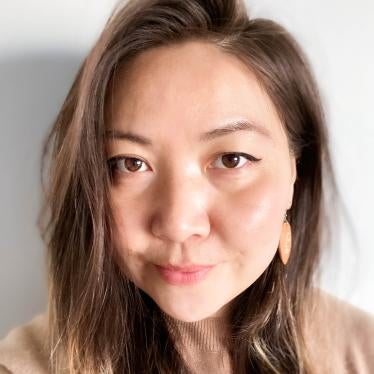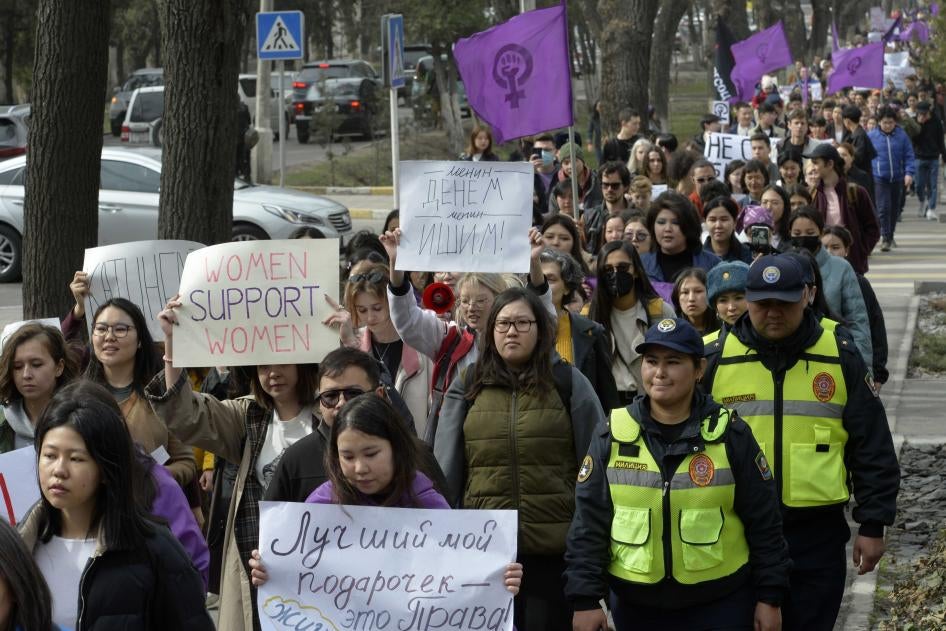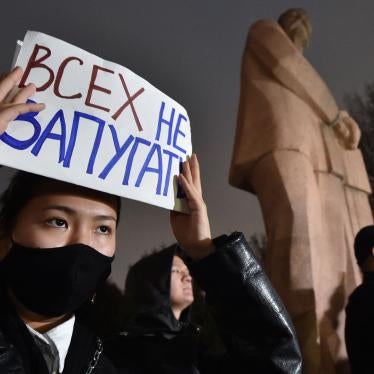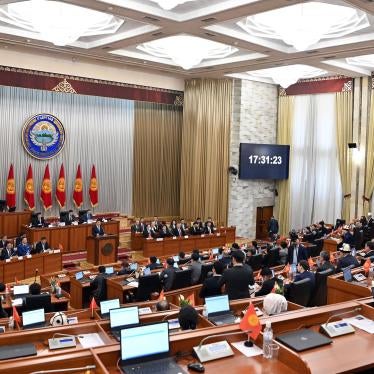Altyn Kapalova is a lesbian feminist, artist, and writer from Kyrgyzstan who has been fighting with Kyrgyz authorities for more than two years for the right to keep the matronymic she gave her three children.
Kapalova chose to give her children an appendage to their first name that comes from her first name, or a matronymic, rather than a patronymic, the father’s first name, as required by law. Patronymics are a vestige of the Russian tradition of naming, still present in many former Soviet republics.
Initially, the Kyrgyz Civil Registry allowed Kapalova to make this change. But the registry moved to annul this decision after she wrote a Facebook post about the decision, calling it a “feminist victory over patriarchy.”
Kapalova has been fighting to maintain the registry’s initial decision ever since, including before the Supreme Court, which upheld the registry’s annulment request. On June 30, the Kyrgyz Constitutional Court handed her a mixed victory, ruling that any Kyrgyz citizen over age 16 could choose between a patronymic and a matronymic on their identity documents, but upholding the annulment in her case, citing the age of her children, who are 6 to 16.
The court found the current Kyrgyz Law “On Acts of Civil Status,” which only allows patronymics, to be discriminatory and unconstitutional. The court’s decisions are final and cannot be appealed in Kyrgyzstan.
The story started in December 2020 when Kapalova had her children’s birth certificates reissued with her name as the “patronymic.” Kapalova had applied for new birth certificates after a lengthy legal battle to strip the children’s fathers of their parental rights, citing their total absence from the children’s lives and lack of financial or moral support in their upbringing.
“Why is it that I, their mom, who is bringing them up completely alone, not asking for any kind of support from the government or anyone else, cannot give them my last name and my name as their matronymic?” said Kapalova.
Kapalova considers the Constitutional Court decision a win for many single-parent, mostly mother-led, families in Kyrgyzstan.
“This is not the end for me – I will fight for the right of mothers to give matronymics for their children at birth,” Kapalova told Human Rights Watch.










